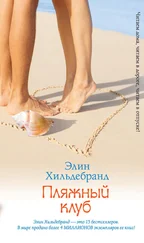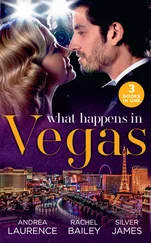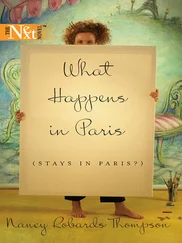“I’m sure Rosie had her phone with her.”
“Yes,” Agent Vasco says. “We’ve subpoenaed the records.”
Subpoenaed sounds serious, but of course, Rosie had a huge amount of cash stuffed into a drawer.
“If you don’t mind my asking, what kind of crimes are you investigating?” Huck is thinking drugs, obviously. It’s the Caribbean.
“I’m not at liberty to say. Also, we aren’t really sure what we’re dealing with here.” Agent Vasco offers Huck a tight smile. “If we have any further questions, I’ll be in touch.”
“That’s it?” Huck says. “You’re leaving me?”
“Yes,” Agent Vasco says. “You should be happy.” She gathers the goons and they follow her out to the car with two black duffel bags filled with the money.
Easy come, easy go, Huck thinks.
Agent Vasco and company drive down Jacob’s Ladder’s series of switchbacks; Huck spies the car once, twice, three times—then they disappear. At nearly the same moment, Huck sees the Mississippi gliding across Rendezvous Bay. Today’s charter was a couple of state troopers from Alaska. Apparently, these two are famous; they’re featured on some reality-TV show, which Huck has a difficult time fathoming. Huck has less than no interest in celebrities; what makes him regret missing today is that these gentlemen really wanted to fish. Huck nearly calls Adam to tell him to turn around and pick him up at the Westin dock, but that’s impractical, a waste of time and gas.
It’s only ten o’clock and Huck doesn’t have to get Maia until three. He could read his book—he still hasn’t finished the Connelly—and, he supposes, he could go to the beach. He hasn’t been in a long time; whenever Maia wanted to go, Rosie would take her. LeeAnn used to love sitting on Gibney, and Huck loved LeeAnn so he would join her there, though left to his own devices, he would go to Little Lameshur, far, far away from the crowded north shore. Should Huck pack up a fish sandwich and drive out to Little Lameshur? Maybe live really large and stop at the Tourist Trap for a lobster roll on the way? The idea is novel enough to be intriguing, but then Huck thinks about one of Agent Vasco’s comments: We aren’t really sure what we’re dealing with here.
Huck isn’t sure what they’re dealing with either, but he does know one thing: he was relieved when the dog didn’t go pawing at the floorboards and they didn’t discover blocks of cocaine or heroin to go along with all that money.
Someone on this island must know more than Huck does. The coconut telegraph is real. Huck picks up his phone and calls Rupert.
Because Rupert doesn’t like to leave Coral Bay, he and Huck meet at Skinny Legs. It turns out, it’s as good a place as any to have a quiet conversation in the middle of a gorgeous sunny day. Skinny Legs is the quintessential Caribbean bar. It’s tucked into a grove of shade trees a few hundred feet from the lip of Coral Bay. The bar itself looks like a lean-to built by Robinson Crusoe after a few rum punches. It’s open to the air on one side and features picnic tables thick with paint and a little stage for live music from happy hour until last call. There’s an adjacent gift shop that sells souvenirs celebrating all things Skinny Legs; Huck has never set foot in it. In Huck’s opinion, Skinny Legs’ only fault is that it’s gotten so famous. The best way to ruin a place is to make it popular.
One of the things that keeps Skinny Legs authentic is that characters like Rupert still hang out here. Rupert is the prince of the establishment, if you can call a sixty-something-year-old man a prince. He’s in his usual spot, corner stool on the right-hand side; he has a Bud Light in front of him. Huck checks the time: eleven fifteen. He still has more than three hours before he has to pick up Maia from school, and for this conversation, he probably needs something stronger than an iced tea. He flags down Heidi, the bartender.
“Painkiller, please,” Huck says.
Rupert chuckles. “That’s a woman’s drink.”
“I’m not allowed to say things like that in my house,” Huck says. “Don’t you know any better?” He takes a stool and rubs the top of Rupert’s bald brown head.
They fall into their usual pattern of conversation, which is distinguished by long pauses and subsequent non sequiturs. Rupert doesn’t like to be rushed; he’s retired now and has earned the right to mull things over, and if his mind wanders in the process, oh, well. Rupert has lived on St. John his entire life; his family goes back generations, and Huck teases him by saying that Rupert’s ancestors invented the concept of island time, but Rupert is the one who perfected it.
Huck drinks one painkiller and waves to Heidi for another before Rupert finishes summarizing his list of physical ailments: his back has been giving him trouble, his right toe throbs in the rain, he can’t sleep more than three hours without having to get up to take a piss. Then it’s Huck’s turn to talk about how the fish are running. Better since the new year, he says—meaning since Rosie died, meaning since Irene set foot on his boat and into his life.
“Good to hear it,” Rupert says. “And how’s Maia?”
Huck tells Rupert about taking Maia to town with her friends and how that bothers him.
Rupert laughs. “It’s a goddamned island, Huck. How much trouble can she get in? All the West Indian ladies who grew up with your wife have eyes in the backs of their heads. If Maia takes so much as a puff of a cigarette, you’ll hear the crowing all the way up on Jacob’s Ladder.”
Huck shakes his head. “They don’t smoke anymore, Rupert. They vape. It’s electronic, thing looks like a pen. They put a pod in it—”
“Don’t tell me,” Rupert says. “I don’t want to know.”
“It’s all happening so fast. And I don’t like the timing, her getting so independent right after her mother dies.” This is when Maia would be most vulnerable to vaping and drinking and—Huck can barely let himself think it— sex. He has to find a way to make sure she grows up responsibly. Honestly, he could use some help.
They’re quiet a few minutes. The song in the background is Warren Zevon’s “Lawyers, Guns, and Money.” Huck isn’t sure Rupert is listening to the music, but it feels like a natural segue. “So I had a visit this morning,” Huck says. “From the FBI.”
Huck can sense his friend’s invisible antennae rising.
“That’s why I called you, actually,” Huck says. “To see if you know something I don’t.”
“Funny you should ask,” Rupert says. “Because I heard federal officers paid a visit to the Welcome to Paradise Real Estate office.”
“Really?” Huck says. “Paulette Vickers—”
“Paulette and Doug Vickers and the little boy are gone,” Rupert says. “Rumor has it they left last night on the car barge.”
“ Left as in …”
“ Left as in left, ” Rupert says.
Left as in left. Paulette and Douglas Vickers, who owned Welcome to Paradise Real Estate, pulled their young son, Windsor, out of school and packed what they needed into Doug’s pickup and left twelve hours before the FBI showed up. That was the story Rupert heard from Sadie, one of his many girlfriends, and Sadie’s gossip was generally known to be reliable.
On his way home, Huck drives past the office, and sure enough, there’s the black SUV parked out front, its presence as ominous as a hearse.
The question that bothers Huck is this: How did Paulette and Douglas Vickers know that the FBI were coming? Did they find out Huck had contacted Agent Vasco? Was Huck’s phone compromised? Was there a bug somewhere in his house? If so, would the FBI have found it this morning in their search? Huck lights a cigarette. He needs to get a grip. This is the stuff of movies and Connelly novels. This is not daily life in the Virgin Islands.
Читать дальше












